Buying Bananas Supports Terrorismâ¦Seriously
Only the drug war could create a situation in which banana consumers inadvertently support terror. Makes you wonder what else supports terrorism. Coffee? Soda? Probably, but it's really the international drug war that facilitates the growth of terrorist armies and empowers them to extort absolutely everything in sight.
Banana manufacturer Chiquita Brands International is in big trouble for paying protection money to various terrorist armies in Colombia. They've been assessed a $25 million fine in U.S. federal court and now Colombian prosecutors are seeking the extradition of 8 Chiquita employees. From Forbes.com:
You gotta feel for these folks considering that banana cultivation is one of the more legitimate economic activities going on in Colombia. This kind of publicity isn't doing any favors for our crop substitution efforts.
Thanks to drug prohibition, you can't even grow goddamn bananas without becoming a pawn in the international war on narco-terrorism.
Banana manufacturer Chiquita Brands International is in big trouble for paying protection money to various terrorist armies in Colombia. They've been assessed a $25 million fine in U.S. federal court and now Colombian prosecutors are seeking the extradition of 8 Chiquita employees. From Forbes.com:
Prosecutors say the Cincinnati-based company agreed to pay about $1.7 million between 1997 and 2004 to the United Self-Defense Forces of Colombia, known as AUC for its Spanish initials.These poor bastards at Chiquita got extorted out of $1.7 million by the AUC only to then be extorted out of another $25 million by the U.S. Justice Department. We'll see about the extradition, but I give it good odds considering our interest in maintaining healthy mutual extradition policies with the Colombian government.
â¦
In addition to paying the AUC, prosecutors said, Chiquita made payments to the National Liberation Army, or ELN, and the leftist Revolutionary Armed Forces of Colombia, or FARC, as control of the company's banana-growing area shifted.
You gotta feel for these folks considering that banana cultivation is one of the more legitimate economic activities going on in Colombia. This kind of publicity isn't doing any favors for our crop substitution efforts.
Thanks to drug prohibition, you can't even grow goddamn bananas without becoming a pawn in the international war on narco-terrorism.
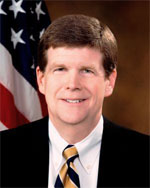
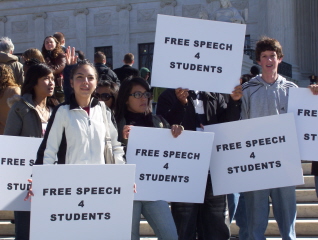
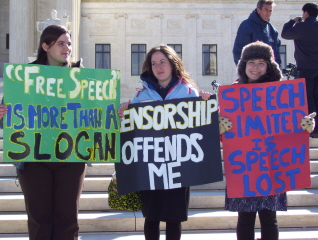 Ken Starr, counsel for the bad guys:
Ken Starr, counsel for the bad guys:
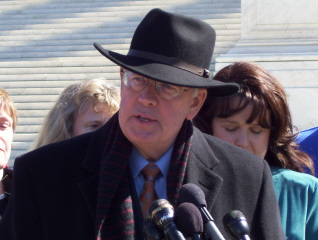 Former US drug czar Barry McCaffrey (also there for the bad guys):
Former US drug czar Barry McCaffrey (also there for the bad guys):
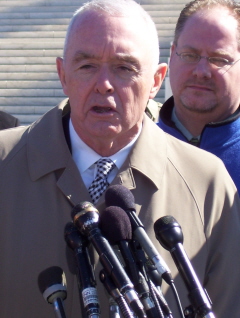 More demonstration and press conference pictures (click the "read full post" or title link in this post to see the rest if you don't already see them):
More demonstration and press conference pictures (click the "read full post" or title link in this post to see the rest if you don't already see them):